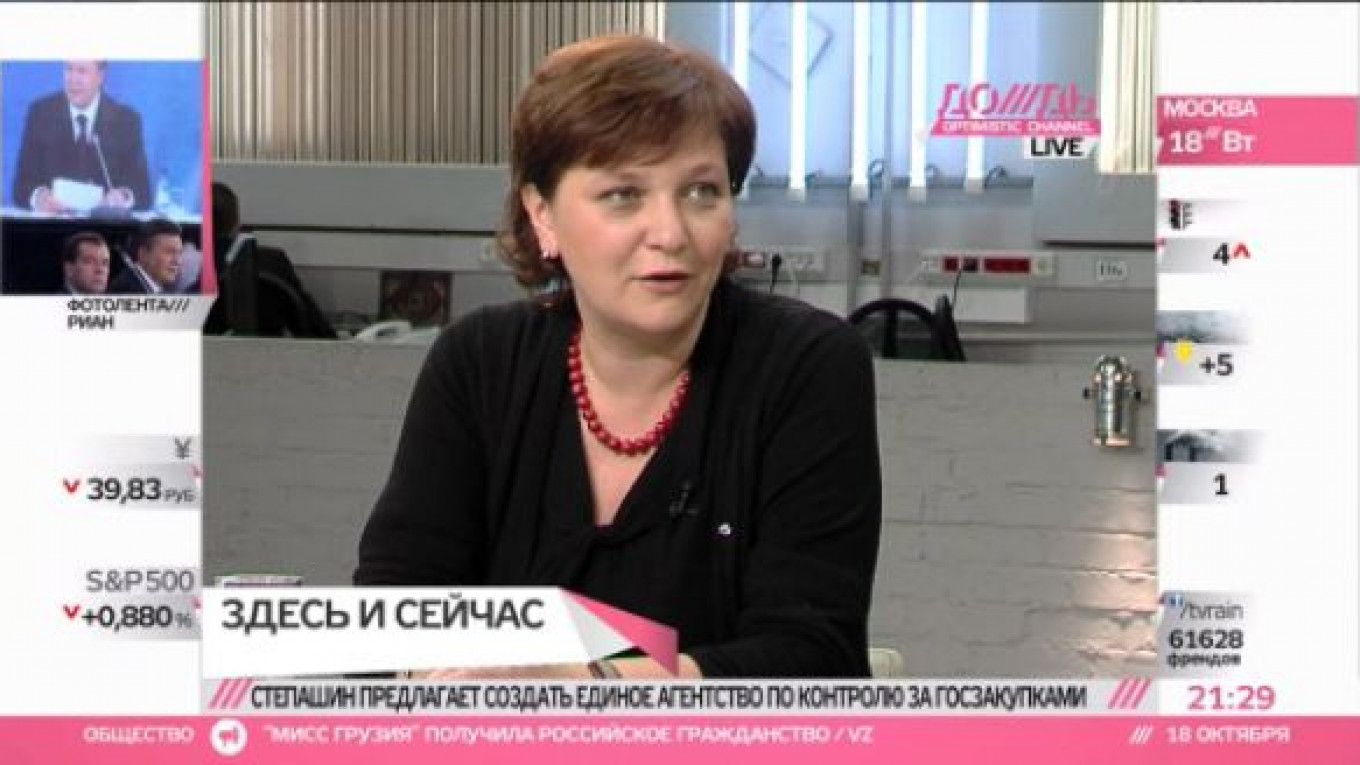Transparency International, an anti-corruption watchdog, said Thursday that a government program to distribute funds to socially oriented nonprofit organizations is ripe for abuse because of a lack of transparency and working controls.
In 2011, the Economic Development Ministry used contests to hand out 141.2 million rubles directly to nonprofit groups and 600 million rubles to regional authorities, which redistributed the money to regional nonprofit groups through contests of their own, Transparency International said in a new report.
The law defines a qualifying nonprofit group as one whose activities are directed at solving social problems and developing civil society. The group cannot be a state-owned entity, a political party or a religious organization.
But Transparency International said the contests were riddled with flaws, including "signs of a possible conflict of interest," as when members of contest commissions worked at nonprofits that later received large grants. Another concern was a lack of official online information about the competitions.
The watchdog group also said regional authorities didn't include anti-corruption controls in their contest rules and sometimes changed rules set by the federal government.
"The procedure must be honest and open, not only on paper," Yelena Panfilova, head of Transparency International's Russia office, said in presenting the report at a news conference.
In a number of regions, state officials made up more than 50 percent of the local contest commission, in violation of federal rules, the report said. In one case, a single person headed several nonprofit groups that applied for grants, which wasn't a direct violation of contest rules but didn't "lead to the improvement of the contest's quality," the group said.
Transparency International also found that state-owned organizations had taken part in contests and that the bidding period for some contests was too short.
In all, 53 regions participated in a federal contest to win the right to redistribute federal money, and 49 regions collected funds, the report said.
In addition to the 742.1 million rubles in federal funds, regional governments provided an unknown amount of additional grants, it said.
The Economic Development Ministry didn't offer an immediate comment about the findings.
, then-President Dmitry Medvedev signed off on amendments introducing state support for socially oriented nonprofit groups. He submitted the bill to the State Duma
The 2010 law also grants socially oriented nonprofit groups the right to receive support from federal or local authorities in the form of money, property, tax breaks, information, consultations or education.
The nonprofit groups can also accept contracts from state and municipal officials. Companies that provide financial support to the nonprofit organizations qualify for tax breaks under the law.
Related articles:
A Message from The Moscow Times:
Dear readers,
We are facing unprecedented challenges. Russia's Prosecutor General's Office has designated The Moscow Times as an "undesirable" organization, criminalizing our work and putting our staff at risk of prosecution. This follows our earlier unjust labeling as a "foreign agent."
These actions are direct attempts to silence independent journalism in Russia. The authorities claim our work "discredits the decisions of the Russian leadership." We see things differently: we strive to provide accurate, unbiased reporting on Russia.
We, the journalists of The Moscow Times, refuse to be silenced. But to continue our work, we need your help.
Your support, no matter how small, makes a world of difference. If you can, please support us monthly starting from just $2. It's quick to set up, and every contribution makes a significant impact.
By supporting The Moscow Times, you're defending open, independent journalism in the face of repression. Thank you for standing with us.
Remind me later.






